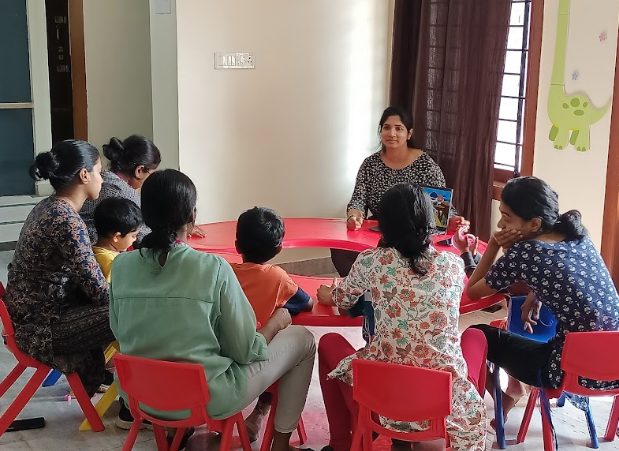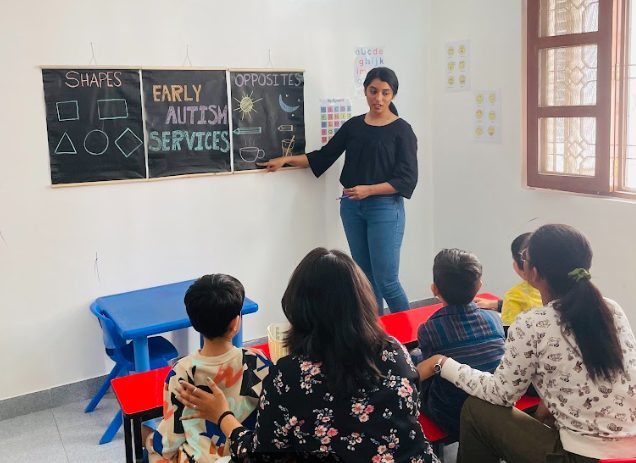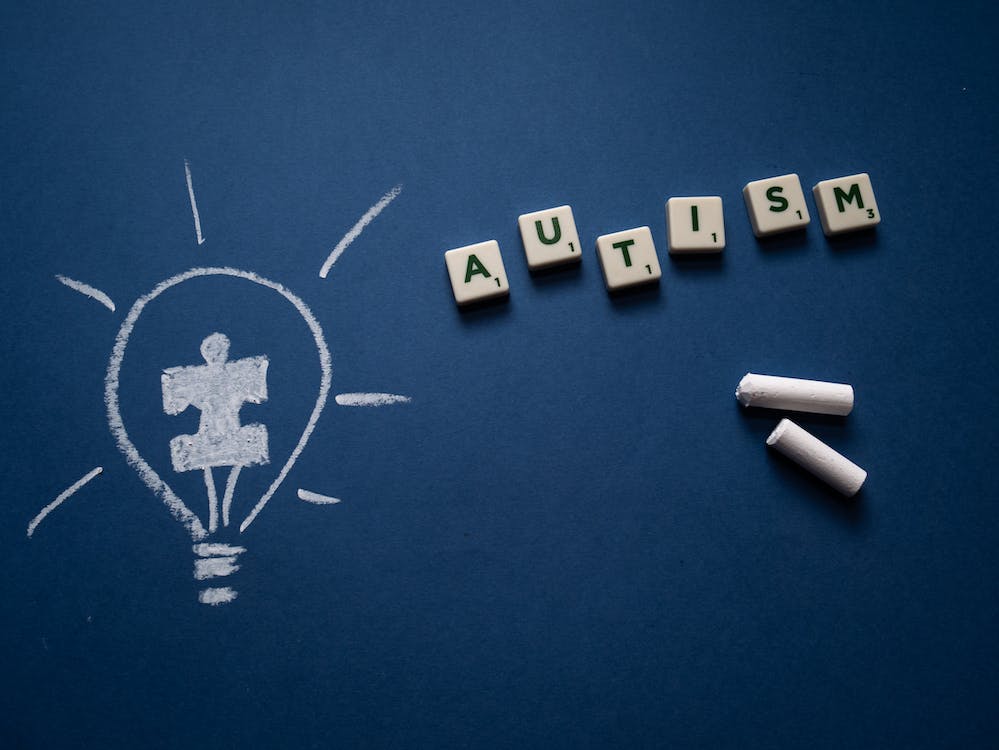
Let’s get something straight right from the start: if you’ve been up at 2 AM wondering if that time you ate sushi during pregnancy or let your toddler watch an extra episode of Bluey somehow caused your child’s autism, you can finally get some sleep.
Spoiler alert: it didn’t.
As parents navigating the autism journey, you’ve probably heard more myths about what causes autism than you’ve had cups of coffee this week (and we know that’s saying something).
Let’s bust these myths wide open and talk about what science actually tells us, plus how ABA therapy can help your child thrive, regardless of what caused their autism in the first place.
#1: The Vaccine Myth: Let’s Put This One to Rest Already
Here’s the big one that simply won’t die: vaccines cause autism. They don’t. Period. Full stop. End of story.
The original 1998 study by Andrew Wakefield that sparked this fear has been completely discredited, retracted, and the doctor behind it lost his medical license. Since then, over a dozen major studies involving more than 1.2 million children have found absolutely zero link between vaccines and autism.
The Centers for Disease Control and Prevention (CDC), the American Academy of Pediatrics, and virtually every major medical organization worldwide agree: vaccines are safe and don’t cause autism. What do they cause? Protection from dangerous diseases that used to kill thousands of children annually.
Now that we’ve cleared that up, let’s focus on what actually matters: helping your child reach their full potential through evidence-based interventions like autism ABA therapy.
#2: “Bad Parenting” Caused My Child’s Autism
Remember those awful “refrigerator mother” theories from the 1950s? The idea that cold, unaffectionate mothers caused autism? Yeah, that was pseudoscience at its worst, and it’s been thoroughly debunked.
Autism isn’t caused by your parenting style, how much you worked during pregnancy, or whether you used attachment parenting or sleep training. Research published in the Journal of the American Medical Association confirms that autism is a neurodevelopmental condition with strong genetic components.
You’re not a “bad parent” because your child has autism.
In fact, seeking out information like this blog shows you’re an engaged, caring parent who wants the best for their child. And that’s exactly the kind of parent who can make ABA therapy progress happen when you team up with the right professionals.
Speaking of which, working with a qualified BCBA (Board Certified Behavior Analyst) through programs like those offered at Early Autism Ventures (EAV) can provide you with the tools and support to help your child develop essential skills. That’s it. No parent-blaming required.
#3: Technology and Screen Time: The Modern Scapegoat
“Too much iPad time caused autism!” Sound familiar? This myth gained traction as tablets became household staples, but it’s simply not supported by science.
Autism is present from birth, even if signs don’t become apparent until later. A 2019 study found no causal relationship between screen time and autism spectrum disorder. While excessive screen time isn’t ideal for any child’s development, it doesn’t cause autism.
So, what can help with screen time management and developing healthier habits?
ABA therapy benefits include teaching children alternative activities and helping them develop self-regulation skills. Through positive reinforcement, children learn to engage with diverse activities beyond screens.
#4: Medications and Over-the-Counter Drugs: The Fear Factor
Here’s where things get tricky, and we need to talk about it honestly. You may have seen headlines about certain pain relievers and fever reducers taken during pregnancy being linked to autism.
Some studies have suggested associations between prenatal acetaminophen use and increased autism rates, but here’s what parents need to understand: association doesn’t mean causation.
Another recent study found correlations between prenatal acetaminophen exposure and ADHD and autism diagnoses, but researchers themselves emphasized that these findings don’t prove causation.
Many confounding factors, like the reasons mothers took pain medication (infections, fever, inflammation), might be the actual contributors.
The science here is still evolving, and most medical professionals agree that untreated fever or severe pain during pregnancy poses its own risks. In fact, leading research still considers acetaminophen the safest pain reliever option during pregnancy when medically necessary.
Bottom line? If you took medication during pregnancy as recommended by your doctor, you made the best decision with the information available. Second-guessing every prenatal decision won’t help your child, but early intervention and therapy will!
#5: Diet During Pregnancy: The Guilt Trip That Seriously Won’t Quit
Did you eat deli meat? Drink coffee? Have a glass of wine before you knew you were pregnant? Take a breath—none of these cause autism.
While nutrition during pregnancy is important for overall fetal development, there’s no specific food or dietary pattern that causes autism. According to research from the National Institute of Environmental Health Sciences, autism’s origins are complex, involving multiple genetic factors and possibly some environmental influences that are still being studied.
The takeaway? Stop beating yourself up over that turkey sandwich from 2019. Instead, channel that energy into learning about how ABA therapy works and how it can support your child’s development today.
#6: Environmental Toxins: When Correlation Isn’t Causation
You might have read articles about pesticides, air pollution, or household chemicals causing autism. While researchers are studying potential environmental risk factors, the science here is far from conclusive.
A comprehensive review suggests that some prenatal environmental exposures might influence autism risk in genetically susceptible individuals, but these aren’t direct causes. Genetics plays the starring role.
Living in fear of every cleaning product won’t help your child. What will help? Evidence-based interventions like autism ABA therapy that focus on building communication, social, and daily living skills.
What DO We Know About the Causes of Autism?
Here’s the scientific consensus: autism is highly heritable, with genetics accounting for roughly 80% of autism risk, according to research. It involves hundreds of genetic variations, which is why autism presents so differently in each child.
Some prenatal factors, like advanced parental age, certain pregnancy complications, and premature birth, are associated with slightly increased autism rates, but none of these are straightforward causes.
Most cases of autism involve complex interactions between multiple genetic factors, and in many cases, we simply don’t know exactly why a particular child developed autism.
The bottom line? Autism is a complex neurodevelopmental condition, and in most cases, it’s simply how your child’s brain was wired from the start. And that’s okay.
Focusing on What Actually Helps: ABA Therapy
Since we can’t change what caused autism (and honestly, understanding causes doesn’t change your child’s needs today), let’s talk about what makes a real difference: ABA therapy.
Applied Behavior Analysis is the gold-standard, evidence-based treatment for autism. A landmark study published in the Journal of Clinical Child Psychology found that intensive early intervention using ABA therapy led to significant improvements in IQ, language, and adaptive behavior.
How Does ABA Therapy Work?
ABA therapy uses principles of learning and behavior to help children develop new skills and reduce challenging behaviors. Through positive reinforcement, therapists reward desired behaviors, making them more likely to occur again. Understanding positive and negative reinforcement ABA therapy techniques helps parents see how behavior change happens naturally and effectively.
At Early Autism Ventures (EAV), our trained autism professionals create individualized programs tailored to each child’s unique needs. We don’t use cookie-cutter approaches, but design interventions that fit your child’s learning style, interests, and family goals.
The Real ABA Therapy Benefits
ABA therapy benefits extend far beyond simple behavior management. Children in ABA programs typically show improvements in:
– Communication and language skills
– Social interaction and play skills
– Self-care and independence
– Academic readiness
– Reduction in challenging behaviors
– Emotional regulation
ABA progress monitoring is built into every session, so you’ll see concrete data showing your child’s growth. This isn’t guesswork but science-backed progress you can track.
At EAV, our approach emphasizes positive reinforcement and naturalistic teaching strategies, making learning fun and engaging for your child. We believe therapy should feel less like work and more like play, because that’s when children learn best.
The ABA therapy benefits families experience at EAV go beyond skill development. Parents often tell us they feel empowered, supported, and hopeful once they see their child’s ABA therapy progress. When you understand how ABA therapy works and see those breakthrough moments, it changes everything.
Moving Forward: From Myths to Meaningful Action
Now that we’ve cleared up what doesn’t cause autism, or what might have unclear connections at best, you can stop wasting energy on guilt and blame. Your child needs you focused on the present and future, not stuck in the past.
The most important question isn’t “What caused my child’s autism?” but rather “How can I help my child thrive?” The answer increasingly points to early intervention with ABA therapy, which has decades of research supporting its effectiveness.
ABA therapy progress doesn’t happen overnight, but with consistency, expert guidance, and family involvement, remarkable growth is possible. Children who receive early, intensive ABA therapy often make gains that seemed impossible at diagnosis.
This personalized approach creates the foundation for meaningful, lasting change.
So, please don’t let myths, misconceptions, or guilt hold your family back. The ABA therapy benefits are real, measurable, and life-changing. Through careful ABA progress monitoring, we’ll show you exactly how your child is developing and what milestones they’re reaching.
Ready to See What ABA Therapy Can Do for Your Child?
Contact Early Autism Ventures today for a free consultation. Let’s talk about your child’s unique needs and how our proven ABA therapy approach can help them reach new milestones.
You’ll learn exactly how ABA therapy works, meet our outstanding team, and discover why families throughout our community trust EAV for their child’s development!
























 A:
A: 




 Creating and maintaining consistency in a child’s environment is one of the best ways to
Creating and maintaining consistency in a child’s environment is one of the best ways to 


Recent Comments